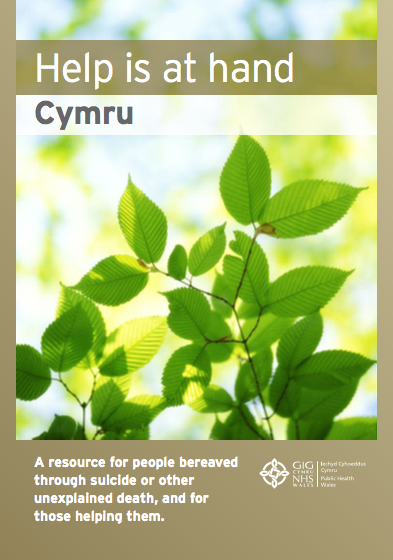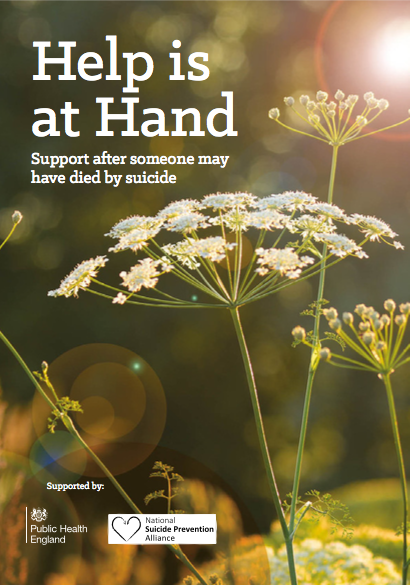Supporting a student who self-harms might seem a little daunting, especially if it’s something you’ve not come across before.
The very first thing to say here is that: EVERY STUDENT IS DIFFERENT
So what works for one person won’t work for everyone. It’s important to keep this in mind, and make sure that you’re tailoring your approach to meet the needs of the person you’re talking to.
Another important bit from the offset is knowing what your school/group/organisation’s policy on self-harm is. It’s worth checking to see if there’s a process already in place that you need to be following, in line with child protection.
Self-harm isn’t suicidal behaviour. In fact, it’s often more of a way of trying to cope and keep on living; it’s a coping mechanism. A harmful one; but a way of trying to cope with a situation.
– BUT – prolonged self-harming behaviour increases the risk of death by suicide.
It’s worth remembering that it’s a reaction to a deeper problem, and is serving some sort of purpose. So a good way to support someone is to help understand and do what you can to resolve the situation that’s leading them to self-harm. And/or in the short term, help find a more positive coping mechanism that can serve the same purpose.
We asked some students that we’ve worked with how to best support them, and here’s a few of the key takeouts from what they said:
Helpful Reactions:
“Yo! Listen to me!”
Honestly, in so many instances, just giving someone the space to talk, and actively listening to what they have to say, hearing their whole story, and letting them talk at their own pace is the most useful first step. Don’t force them to tell you anything, but just be there to listen to them and take them seriously. Remember how hard this conversation might be for them; especially if you’re the first person they’ve spoken to about self-harm.
Focus on the person, not their injuries.
While it can be easy to be shocked and worried about their self-harm, remember this is a person with a complex life, struggling to deal with a bunch of stuff. Obviously, make sure their injuries are taken care of from a medical point of view, but when talking to them, focus more on their situation, what they’re going through, and how they can get through it.
Help them identify positive coping mechanisms
Like we said above, this is their way of trying to cope with whatever’s going on in their lives. If you get an idea of why it is that they’re self-harming, and what purpose it’s serving them, you can help to find something else that can serve that same purpose. For example, if they’re feeling anger or frustration, you can help them find something like exercise or sport that might help deal with those feelings.
If you’ve been working with this young person for a while, you might know them and their interests, to help find things they might already have in place.
You can find a bunch of ideas of things to try (that have helped others in the past) HERE
Unhelpful Reactions:
Don’t break their trust
Establish early on in conversations with the student that there are some things you’ll need to pass on in the interest of their safety. So if they disclose something to you that you’re required to share in line with your Child Protection Policy, let them know what you’re doing and why. A lot of the time, when a student can understand what’s going on, and they feel like they’re in the loop on it, it’s going to be far more effective than if they feel like things are happening behind their back.
This could include you wanting to work with another member of staff who might be able to support them better than you feel you can. It’s ok to be honest and admit that you need support too!
Don’t be angry
Even if it comes from a good place (because you care about them and are worried about their wellbeing!) an angry reaction can leave the student feeling like they can’t talk about what they’re going through with you – or worse, set the tone that them asking for help makes others upset/angry with them.
Don’t make it all about you (or anyone else!)
A lot of students that we speak to mention feeling worried about the impact their self-harm might have on their Mum/Dad/Caregiver. If these feelings are already floating around in their minds, then things like “how do you think this makes ME feel?” are just going to exacerbate them. Remember that this is their issue that they’re dealing with. The goal is to help them deal with the situations in their life better.
At the end of the day, self-harm is just a thing that people do. It doesn’t define them. Supporting a student who’s self-harming can be like supporting them through any issue – approach it sensitively, and put their needs and wellbeing as the main priority.
There’s also a whole heap of helplines and places to talk who can help support the student outside of the time you have with them. Check them out here.
If you’d like some more insights on supporting young people who self-harm, you can get in touch with us about our staff training sessions.

